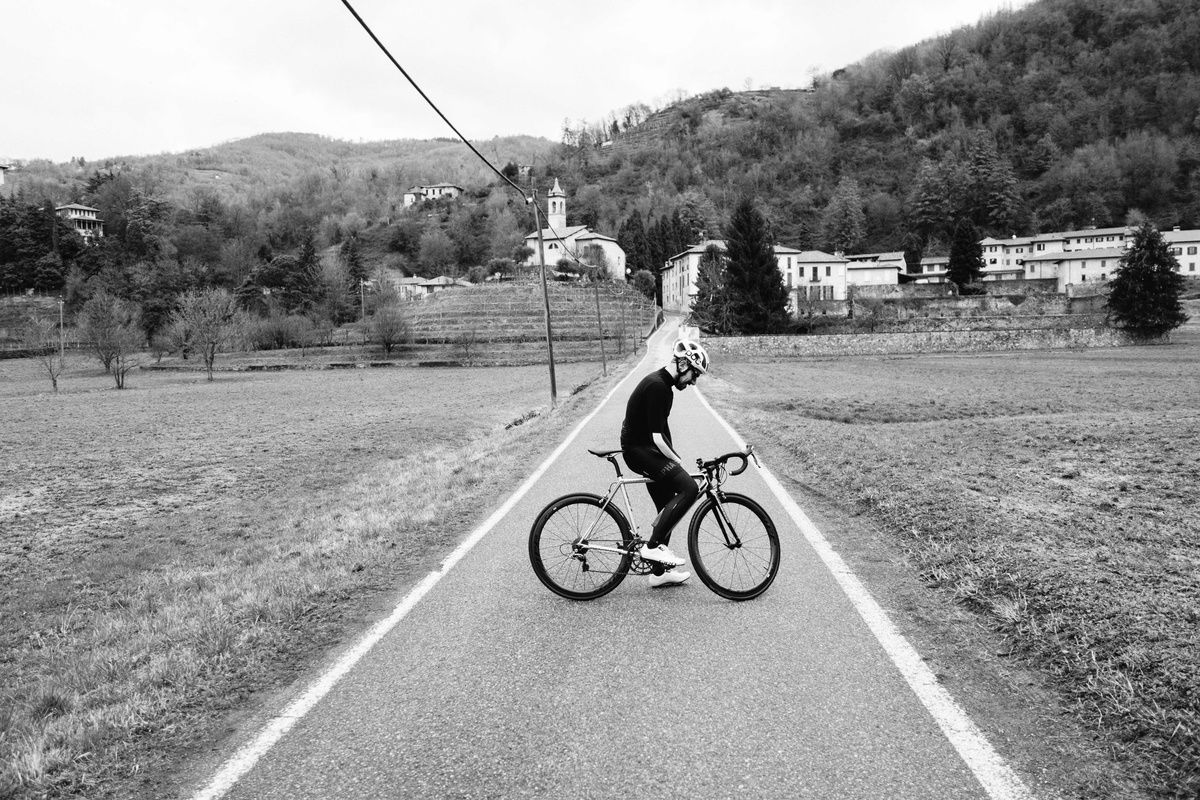Images by Marco Merati
Time away from in-season training can sometimes be difficult to manage for many athletes. When you no longer have structured training and schedules, you may find yourself overwhelmed with your available time. Being able to balance both sport and life is a skill that takes time to iron out the kinks. While some athletes flourish with time off and post-season builds, others may falter. What is key is to find what type of balance works for each individual in order to incorporate all aspects of their life.
Motivation
It is key to understand that motivation is not a constant. Your levels of motivation will ebb and flow throughout the season, and this is normal. No one can constantly be “on.”There are periods of time that you will need to switch “off” and regain your physical and mental energy in order to prepare for another season of racing.
Volume
Your post-season training should vary greatly from what your pre-season and in-season training looks like…and it is supposed to! These post-season training periods or break periods should lean heavily into a decrease in training volume. Don’t be afraid of losing fitness during this time, as this is a crucial time to allow your body to recover and absorb the previous year’s training and racing. This extra time can also allow free time to find and try other pursuits!
Cross-Training
Perhaps you have dabbled in other pursuits and it looks like a form of cross-training. That’s okay! Switch it up! Try something new, as this can help both mentally and physically as well. This can help you work on weaknesses you didn’t even know you had. Being a well-rounded athlete increases our performance in our own individual pursuits.
Learn to Adapt
One aspect of training that can wear down many individuals is the rigid structure that needs to be maintained for weeks and months in order to reach a goal. While transitioning to a new schedule, don’t shy away from being flexible. Learning how to deal with changes can be challenging for many athletes, but learning to roll with it can help you grow.
Fall in Love with the Process….Again
Perhaps when you began, you loved the journey that it took to reach your first goal. If you’re a seasoned athlete you may have found that you know longer are focused on the journey, but now on the destination. Why not rediscover your love for the process? Learning to celebrate all the wins and successes along the way can help to reinvigorate your spirit and motivation. More often than not, many athletes are hard on themselves. Giving yourself some space and freedom to be happy with where you are at a moment can go a long way.
Metrics that Matter
Do you need to know your power data the week after the season is done? Perhaps not. Try shutting off all data screens in order to unleash yourself from over-analyzing. When was the last time you went out for a ride for the love of it? With just the time of day and direction displayed on your computer? Breaks are the time to explore and build your endurance. In-season work is to be race-specific. Post-season work is to build aerobic capacity, increase accumulated fatigue, and build load. You’re looking to become strong right now, being fast comes later.
Strength Work
Speaking of becoming strong, the post-season is a fantastic time to hit the gym. This is when you want to build yourself a strong foundation to taper off of throughout the in-season training/racing. Hitting the gym is also a great way to continue to build your motivation. It is a great way to track metrics like how you feel during certain movements, the amount of weight you are able to move weekly, as well as reps and sets completed. It is a different way to train aside from a focus on watts/kg.
Sticking to a Plan
Though this time of year is not as structured, try to maintain a skeleton framework of a plan. Not only will this help keep you on track, but it will also help you in not feeling as big of a shock to the system when structured training plans come back into focus. Having some semblance of a plan helps you not deviate too far from the path, and this ensures that you don’t undo all of the groundwork you’ve laid for your upcoming season and lifelong goals.
Training requires copious amounts of both physical and mental commitments. While many people can easily see the hours you’ve put in the saddle, in the pool, or on the road, they don’t see all of the hours placed outside of this: nutrition, recovery, sleep, mental focus, and preparation, etc. All of this time that requires full focus also requires a period of relief, time to relax, unwind, and rebuild your resiliency. This break is not only crucial for the next season but even more so for longevity in the sport.





20 February 2019
Something that has worked well for me is communicating with your partner about what your training plan and goals are as well. If you have wee ones to deal with and lots of other life commitments it helps to get buy in from your partner to ensure that they understand when you are going to be busy and want to focus.
Communicate not only with your partner but your team/riding buddies to help keep you on track.
Set realistic goals… If you are not getting a pay cheque for cycling then you need to set some realistic goals that will balance life and fitness.